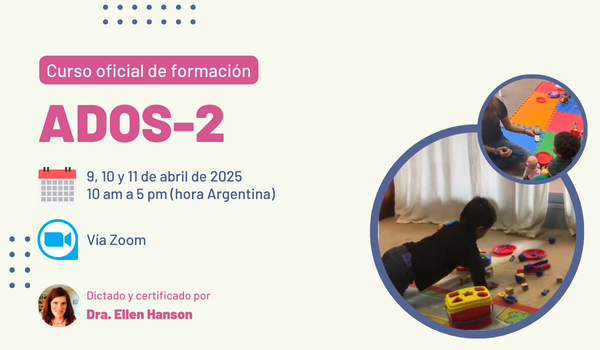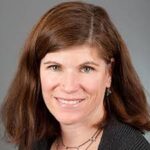0.00
(0.00)
Ellen Hanson Ph.D.
2 Cursos • 127 Estudiantes
0.00
(0.00)
Biografía
Dr. Ellen Hanson is a Developmental Psychologist, Behavioral Specialist and
Researcher. She is an expert in diagnosis and treatment of children who have
significant developmental disabilities. Within this area, she also has specific
research and clinical interest in children with autism spectrum disorder (ASD),
with whom she was worked with for over 20 years; the effect of prematurity on
development; and children with rare genetic disorders, including 16p11.2
deletion and duplication syndrome. Dr. Hanson travels nationally and
internationally to train professionals in the use of phenotyping measures,
developmental assessment tools and behavioral interventions for clinical and
research use with children. Dr. Hanson has developed and run numerous
programs at Boston Children’s Hospital including large studies involving
individuals with ASD and related disorders; social skills enhancement programs
and educational programs for parents. Additionally, she has developed an
undergraduate training program at CH for students who are interested in
pursuing careers as future specialists in developmental disability.
“Over the past 20 years, I have been working steadily towards the goal of
improving the lives of children with developmental difficulties through research
and clinical practice. I began this work as a Young volunteer with children with
developmental disability and severe medical issues both in the United States
and at Fukui Hospital, Japan. I pursued a graduate degree in developmental
psychology in San Diego with Drs. Alan Lincoln (a clinical psychologist and
researcher from California School of Professional Psychology) and Eric
Courchesne (a neuroscientist at University of California, San Diego). I engaged
in multiple research projects and papers and engaged in clinical work assessing
individuals with developmental disability. I worked with Dr. Catherine Lord, a
leader in the field of autism, to learn and eventually become a leading expert
and teacher of two of the “gold standard” clinical assessments of autism, the
Autism Diagnostic Observation Schedule and Autism Diagnostic Interview. I
came to Boston to complete my internship at Franciscan Children’s Hospital in
1998. While there I honed my skills assessing children with developmental
disability and psychiatric disorders. I started as a clinical fellow in the
Developmental Medicine Center at Boston Children’s Hospital (BCH) in 1999,
but over the past 14 years have gradually increased my research involvement.
This began by my starting an undergraduate volunteer program in the DMC in
2004. With volunteer support, I was able to conduct an unfunded project I was
interested in, which resulted in publication. This volunteer program has grown
into a vibrant externship for undergraduates who want to gain experience with
individuals with developmental disability before applying for graduate and
medical school. In addition, I worked with Dr. Leonard Rappaport to start a
phenotyping program and “core” to support my own research interests and to
help other researchers who wanted detailed descriptions of children with
developmental issues for their translational research.
Currently, as director of Neurodevelopmental Disorders Phenotyping Program
(NDPP) I coordinate and mentor up to 20 employees at any given time on
multiple grants in my lab. I have helped to organize and successfully run major
local collaborations with a number of researchers in many BCH departments
including the Programs in Genomics, Bioinformatics, Neurology and Genetics
as well as with other Boston institutions including MIT, MGH, BIDMC and
BMC. I was a founding member of the Autism Consortium of Boston. I have
formed national collaborations and led a multi-center national study funded by
the Simons Foundation. In addition, I have formed international collaborations
and have consulted with and taught in numerous places around the world. I
regularly present at local, national and international meetings on developmental
disability, phenotypes of genetic disorders, and autism.
As director of NDPP, my goal is to advance the current understanding of
neurodevelopmental disorders as well as be a mentor and teacher to others
interested in this field. My team has made significant contributions to the
literature on translational research, specifically the phenotype and genotype of
Autism Spectrum Disorders and other neurodevelopmental disorders. I
have been an author on over 35 papers and my lab has presented hundreds of
posters. My lab has helped describe the cognitive and behavioral phenotype of
multiple new genetic abnormities such as 16p deletion and duplication, 1q21.1
and neurexin 1 deletion. This is a relatively new area of study since most
genetic syndromes in the past were distinguished by dysmorphic physical
features or abnormalities, but these newly described genetic changes cause no
physical, but quite debilitating cognitive and behavioral abnormalities. I recently
published the first paper comprehensively describing the phenotype of 16p11.2
deletion syndrome as well as a number of other papers related to phenotyping
individuals with developmental disability. Our lab developed a new measure, the
Behavior and Sensory Interest Questionnaire to help understand and study the
unusual behaviors often seen in Autism and other developmental
disorders. We have now had numerous papers published using this
measure. In addition, with my phenotyping expertise, I have been a co-author
on numerous translational, collaborative papers. Due to my collaborations with
multiple basic scientists, I am often the first non-bench science author and my
role is to bring the clinical perspective along with the phenotyping experience to
the research project.”
Cursos
USD$800
149% Booked
Enrollment is now paused


